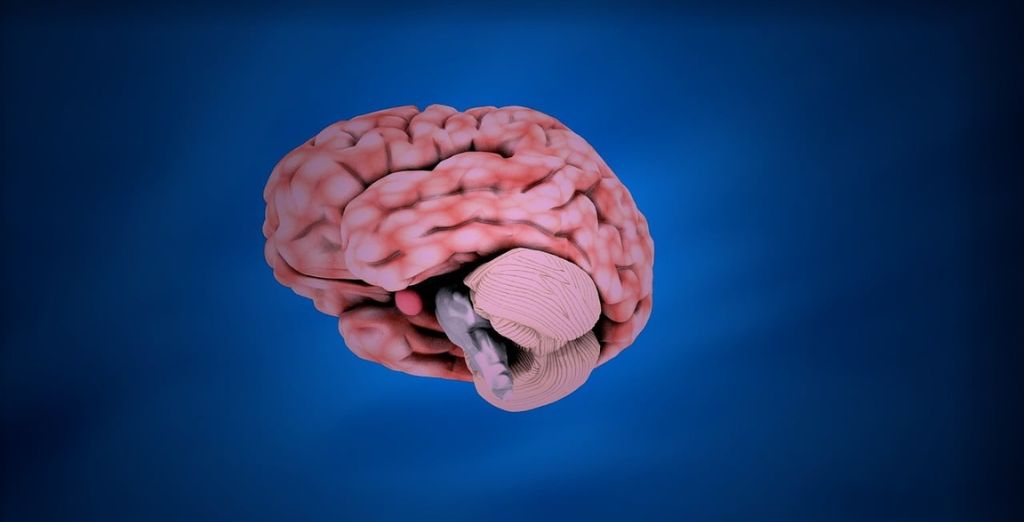Chenango County, located in the heart of New York, is a region with unique mental health needs. With its rural landscape and a population that faces various social and economic challenges, mental health care has become a critical service. In this article, we will dive deeply into the mental health challenges and services offered in Chenango County, focusing on how individuals and families can access support. Whether you or a loved one are seeking help, understanding the landscape of Chenango mental health services is vital.
Understanding Mental Health in Chenango County
Mental health issues are prevalent across all regions, but in Chenango County, factors such as isolation, limited access to resources, and economic struggles exacerbate these concerns. Rural populations often face barriers that their urban counterparts do not. Mental health issues like depression, anxiety, substance abuse, and PTSD are common and can be intensified by rural stressors such as long distances to healthcare facilities, stigma around seeking help, and a shortage of specialized mental health professionals.
Mental Health Statistics in Rural Areas Like Chenango County
Research indicates that individuals living in rural areas, including Chenango County, may be at a higher risk for mental health disorders. National statistics reveal that rural communities often have fewer mental health providers, leading to delayed treatment or reliance on emergency services in crisis situations. Suicide rates in rural America are significantly higher compared to urban areas, often due to a lack of accessible care and greater social isolation.
Chenango County mirrors these national trends: Access to mental health care services is limited, especially for specialized care such as therapy for trauma or addiction services. Recognizing these challenges is the first step towards improving mental health outcomes in the area.
Chenango Mental Health Services: Where to Find Help
Fortunately, Chenango County offers a variety of services aimed at addressing mental health concerns. The Chenango County Behavioral Health Services (CCBHS) provides a broad range of programs designed to help individuals cope with their mental health issues, including:
Outpatient Mental Health Services: These include counseling, psychiatric evaluations, and ongoing therapy sessions. Services are offered to children, adolescents, and adults, covering a wide range of issues such as depression, anxiety, and family conflict.
Substance Abuse Services: Given the national opioid crisis, substance abuse services are crucial in rural areas. Chenango County has facilities offering addiction treatment, including outpatient programs, medication-assisted treatment (MAT), and group therapy for individuals struggling with substance abuse.
Crisis Intervention Services: For those experiencing a mental health crisis, Chenango County offers immediate intervention services. These services are designed to stabilize individuals in crisis and provide them with the necessary support and guidance to receive appropriate care.
Telehealth Services: As access to physical clinics may be challenging for some residents, telehealth has emerged as a powerful tool in Chenango County. Through teletherapy sessions, patients can receive mental health support from the comfort of their homes, reducing the burden of travel.
How to Access Mental Health Services in Chenango County
Residents seeking mental health services in Chenango County can start by contacting the Chenango County Behavioral Health Services (CCBHS), which acts as a gateway for many of the county’s mental health resources. The CCBHS offers free screenings to assess the type of care required, from outpatient counseling to more intensive interventions.
Community Support and Outreach Programs
Community engagement is crucial in improving mental health outcomes. In Chenango County, local initiatives aim to reduce the stigma surrounding mental health and encourage individuals to seek help. Programs like mental health first aid training are becoming more common in schools, workplaces, and community centers. These programs train community members to recognize the signs of mental health struggles and provide initial support before professional help can be obtained.
Chenango County’s community-based approach emphasizes prevention and early intervention, ensuring that residents have the tools they need to manage their mental health before it escalates into a crisis. Support groups, peer counseling, and community outreach services are available throughout the county, creating a network of care that addresses both the immediate and long-term mental health needs of the population.
The Impact of COVID-19 on Mental Health in Chenango County
Like the rest of the world, Chenango County faced an increase in mental health challenges during the COVID-19 pandemic. Social isolation, economic hardships, and the overall uncertainty caused by the pandemic led to a rise in anxiety, depression, and substance use disorders. Healthcare providers in the region reported higher-than-usual demand for mental health services, with many turning to telehealth as a means of coping during the lockdown.
The pandemic also highlighted the disparities in mental health care access, especially in rural areas. While telehealth helped bridge the gap for some, many residents struggled with internet access or the necessary technology to take advantage of virtual care. This digital divide further complicated the ability of Chenango County residents to receive timely mental health services.
How the Community is Responding to the Mental Health Crisis
The people of Chenango County have come together to address the growing mental health crisis. Local government and community organizations have ramped up efforts to improve access to care. There are ongoing collaborations between the Chenango County Department of Health and local non-profits to develop more comprehensive mental health programs that cater to both individuals and families.
Educational programs in schools now focus on mental health awareness, teaching students how to manage stress, identify mental health challenges in themselves and others, and reach out for help when needed. This early intervention is a critical part of reducing the long-term impact of mental health disorders on the younger population.
Overcoming Barriers to Mental Health Care in Chenango County
Despite these advances, Chenango County continues to face significant challenges in addressing mental health needs. Barriers such as transportation, limited provider availability, and the stigma attached to seeking mental health care still exist.
Challenges Unique to Rural Areas Like Chenango County
Several factors contribute to the growing mental health crisis in rural areas:
Geographic Isolation: Residents in rural communities often live far away from healthcare facilities. This makes accessing mental health services difficult, especially for those without reliable transportation.
Provider Shortages: Mental health professionals are more concentrated in urban areas, leaving rural communities underserved. In Chenango County, the ratio of mental health professionals to residents is much lower than the national average, leading to long wait times for appointments and a lack of specialized care.
Stigma Around Mental Health: In many rural areas, including Chenango County, there is a significant stigma associated with seeking mental health care. Many people fear judgment from their neighbors or community and thus avoid seeking help, even when they need it most.
Economic Strain: Economic hardships are more common in rural areas, and financial stress can exacerbate mental health issues. Poverty, unemployment, and lack of affordable housing create a vicious cycle that leaves individuals more vulnerable to mental health disorders such as anxiety and depression.
Breaking the Cycle: What Can Be Done
To address these challenges, a combination of innovative solutions and community support is required. Here are some of the steps being taken in Chenango County and similar rural communities to improve mental health care access:
Increased Telehealth Services: Telehealth has emerged as a powerful tool to bridge the gap between healthcare providers and rural residents. By offering virtual therapy and counseling sessions, Chenango County residents can receive care without the need for long commutes to healthcare facilities.
Mobile Clinics: Mobile mental health clinics have been deployed in several rural areas, providing on-site care to those who cannot travel. These clinics can offer counseling, medication management, and crisis intervention services, helping to meet the mental health needs of rural populations directly.
Community-Based Initiatives: Grassroots mental health initiatives have proven effective in Chenango County. Local churches, schools, and community organizations play an essential role in mental health awareness campaigns, reducing stigma, and encouraging people to seek help when needed.
Training Local Health Workers: Another solution is training primary care physicians and other non-specialist health workers to recognize and treat basic mental health conditions. In rural areas where mental health professionals are scarce, general practitioners are often the first point of contact for those experiencing mental health issues. Providing them with additional training can help ensure that patients receive the care they need in a timely manner.
FAQs
1. What mental health services are available in Chenango County?
Chenango County offers a range of services including outpatient counseling, psychiatric evaluations, substance abuse treatment, and crisis intervention. Telehealth options and mobile mental health units are also available to improve accessibility.
2. How can I access mental health care in Chenango County?
You can contact Chenango County Behavioral Health Services (CCBHS) for screenings and referrals to appropriate care, including counseling, addiction treatment, and telehealth services.
3. What are the most common mental health issues in Chenango County?
The most common issues include depression, anxiety, substance abuse, and PTSD. These are often exacerbated by isolation, financial stress, and limited access to specialized care.
4. How has the COVID-19 pandemic affected mental health in Chenango County?
The pandemic led to increased rates of anxiety, depression, and substance abuse, with many people turning to telehealth for support due to the restrictions on in-person services.
5. What is being done to reduce the stigma around mental health in Chenango County?
Community outreach programs, mental health first aid training, and awareness campaigns in schools and workplaces are helping to reduce stigma and encourage people to seek mental health support.















